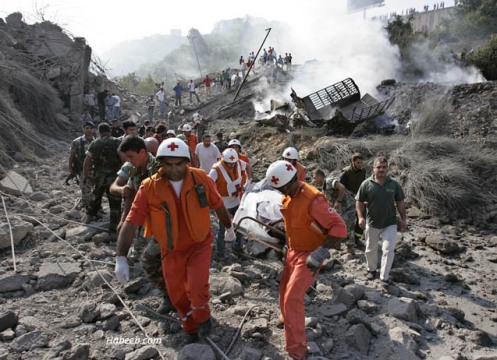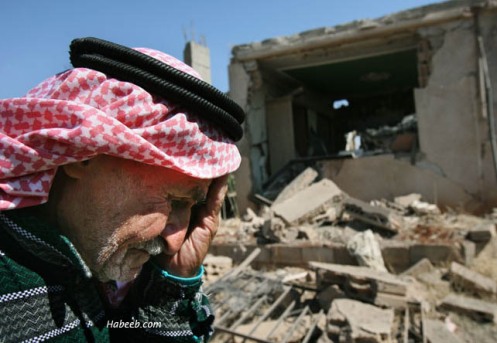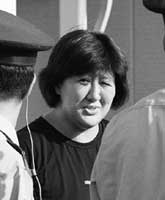 It suddenly dawns on Ozawa that we are all here in this interrogation room for reasons other than to bullshit; he changes the topic of conversation and walks me through tomorrow’s routine.
It suddenly dawns on Ozawa that we are all here in this interrogation room for reasons other than to bullshit; he changes the topic of conversation and walks me through tomorrow’s routine.
“You’ll be taken to the airport early tomorrow morning,” he says.
“Why the airport,” I ask.
“We haven’t got the equipment to make the call here at the jail,” Ozawa replies.
“Equipment? How’s about a phone?”
“Recording equipment, smartarse. We need to record the conversation.”
“Can’t you just record the conversation on a cell phone?”
“You can do that?” Nakata asks with amazement.
“Yes,” I say. “Well, at least on mine you can.”
“Boy, what’ll they think of next,” Nakata says with a cluck of his tongue.
“Skype.”
“What?”
“Skype is what they thought up next,” I say. “It’s free software that allows for free computer-to-computer video conferencing.”
“Free?” Ozawa interjects crustily. “How do they make any money?”
“Beats me,” I say.
“Okay, okay, okay,” Ozawa, says, trying to lasso the conversation. “A phone”, he says, “a land line will be set up at the customs office at the airport. You’ll make the call at ten in the morning.”
“Will my cousin be expecting the call?”
“She will,” he answered. “Ms. Stern has agreed to cooperate with us.”
I don’t know if I should stand up and rejoice or shit my pants.
“When you talk to her,” Ozawa continues, “try not to be angry. We need her to talk.”
“I’ll do what I can,” I say.
“Great.”
Ozawa sits back and, yawning loudly, stretches his arms high above his head.
That’s it? They came all this way just to tell me to make nice with my cousin when I call?
I can’t believe the two would take time out of their busy schedules just for this, and, yet, we spend the next hour or so prattling away like three buddies in a Starbucks. Mind you, I am not complaining–anything’s better than sitting cross-legged on a sponge in that miserable, little cell–I just can’t understand what all the urgency in putting me behind bars was when the “interrogations” would end up being so pedestrian.
With his head against the wall, Ozawa asks if I find Fukuoka a livable place.
I confess! I did it! I did it!
“Everyone’s always asking me that,” I reply with a sigh, “and I never quite know how to answer.”
“It’s a simple question,” he says.
“It is, yes, but I often get the impression that people really don’t want to know what I feel about the place. Rather, they’re just prodding me into telling them what a wonderful city Fukuoka is. Is Fukuoka a good city? Yes, quite. It’s clean, and by clean I don’t mean beautiful because like most Japanese cities it isn’t. Frankly speaking, it’s ugly, but it is clean.”
 “I never noticed,” Ozawa says.
“I never noticed,” Ozawa says.
Sadly, the drug enforcement agent is telling the truth.
In Tokyo, there’s a famous bridge, called the Nihonbashi (lit. Japan Bridge) that crosses a river of the same name.
The original wooden Nihonbashi, which features prominently in ukiyo-e prints was constructed in 1603. The stone bridge spanning the river today was built in 1911 and is representative of the architecture of the Meiji Era, which was heavily influenced by British design.
A popular sightseeing spot for Japanese today, many Japanese visiting the capital from the provinces have their picture taken at the bridge, which is considered the center of Tôkyô, and the point of reference used when measuring the distance from the city.
Until the 1960s, Mt. Fuji was still visible from the bridge. Any view you might want to enjoy today, however, has been blighted by an expressway that passes overhead.
I brought the eyesore to the attention of a middle-aged woman who was showing me some snapshots from a recent trip to Tokyo.
“This would have been a beautiful view,” I said, “if the Ministry in charge of roads hadn’t ruined it by constructing this ugly highway.”
She was surprised to hear that. Focused so intently on the bridge itself, lost in myopic nostalgia, she hadn’t even given a thought to the highway and the noisy traffic roaring ahead.

But that’s the way it is with the Japanese. They can find a dandelion in a dunghill and consider its beauty worthy of a haiku. The unthinking acceptance of concrete as progress has allowed the government to pave over the country creating a monster of modernity.
And Japanese will tell you that they haven’t noticed.
A city like Fukuoka is only moderately better. Without any semblance of an overall plan, though, it has become an architectural free-for-all, left to the capricious collusion of greedy property developers, landowners, and unthinking bureaucrats.
But, yes, Fukuoka is clean. I’ll hand it that. There’s no litter in the streets, hardly any graffiti on the walls. The Japanese tend to respect public property, other people’s property, which is something American and European youth might consider emulating before they spray, scratch, or scrawl their name on a wall like a mongrel marking it’s territory with piss.
“The food is good, too,” I say. “You can duck under the noren curtain of just about any restaurant in my neighborhood of Daimyô and be fairly certain of getting a reasonably priced meal that will knock your socks off.”
“Got that right,” Ozawa says, closing his eyes and imagining, I suspect, a big bowl of Hakata tonkotsu (pork bone) ramen.
“Now, Ozawa-san, if you’re asking me whether it’s easy for a foreigner to live in this town, then you’re asking the wrong guy.”
“Why’s that?”
“Because I’ve been out of place my whole life. I don’t know what it’s like to feel at home.”
“Oh?” he says, straightening up.
“Ever since I was a kid,” I tell him, “I’ve been going back to my father’s hometown of Avignon, near the south of France. I speak the language all right, not perfect of course, but I manage, and have a French name. You’d think I’d be able to kick back and enjoy myself there. The local French, though, they take one look at my face and see an Arab. If I tell them, that I’m not Arab, that I’m half Lebanese, the tension eases up a bit, but not a whole lot. They don’t consider me half-French, they see me as being Lebanese. And, well, if you’re half French, you’re half of nothing and half of nothing is nothing, after all.”
“Remarkable,” says Nakata, leaning forward and propping his pudgy mug up in the palm of his left hand. “I had no idea it was like that there.”
“In America it’s not much different. Even though I was born there and spent most of my life there. I’ve never managed to fit in.”
“Why not?” Ozawa asks.
“Beats me! America’s supposed to be a country of immigrants, people coming from every corner on the earth, many only two or three generations earlier. You’d think that with all that rich culture pouring into the U.S., the country would have this rich cultural heritage and celebrate their roots more. Your average American, however, couldn’t care less about what is happening outside the country. The ignorance is pervasive and entrenched.”
“Really?” Ozawa shakes his head with disbelief.
“Honest,” I say. “There was something I read a few years back. An overwhelming number of Americans supported attacking Iraq. I don’t remember what the exact number was, but it was outrageously high. Scandalously high when you consider the war was based on bald-faced lies.”
“Aren’t they all?” Nakata says.
“Yeah, they usually are,” I have to admit. “There’s a saying in English: the first casualty of war is the truth. It has been especially true with this second war with Iraq. Anyways, back to what I was saying . . . Even though most Americans were gung-ho about gittin’ Saddam Hussein, a survey found that your average American patriot couldn’t even locate Iraq on a world map.”
The shoulders of my two interrogators jiggle up and down, their chests spasm.
 “Fortunately,” Ozawa says barely able to contain himself, “the U.S. has those smart bombs, otherwise they’d be bombing Fukuoka by mistake.”
“Fortunately,” Ozawa says barely able to contain himself, “the U.S. has those smart bombs, otherwise they’d be bombing Fukuoka by mistake.”
The two of them bursts out laughing, and I might be joining them if only those bombs really were smart. How many Iraqi civilians have been blown apart by these so-called smart bombs. How many otherwise ordinary Arabs have been inspired to commit terrorist acts by all the innocent murdered by the touted pin-point accuracy of these not so smart bombs?
“After the terrorist attack on the World Trade Center,” I say, “things have gone from bad to worse in the U.S. for anyone of Middle-eastern descent.”
“How so?” Nakata says.
“Well, for one, just looking Arab is enough to earn you all kinds of grief. Right after nine-eleven, some ignorant redneck shot and killed an Indian Sikh because he mistook him for an Arab.”
“I heard about that,” Nakata says.
“It’s also a hassle at airports,” I say. “The customs and immigrations officials in the U.S. aren’t as sophisticated as they are here, Nakata-san.”
The Customs official grows an inch.
“Show the authorities your American passport,” I continue, “and, they’ll examine it as it were a forgery. Once they’re satisfied that the passport is legitimate, they then turn their suspicions to all the stamps, jumping out of the pages, like little jihadiis waving red flags–Lebanon, Syria, Egypt, U.A.E., Qatar, Malaysia. They can’t imagine why someone in their right mind would ever want to travel to an Islamic country. Having a French name hasn’t helped either: the French have been personae non gratae since their opposition to the war.”
“Interesting,” says Ozawa. “I always thought that America was more tolerant of different races. What is it called, the ‘melting pan’, something like that?”
 “No, no, that’s not it. It’s called the ‘melting frypan’,” says Nakata confidently.
“No, no, that’s not it. It’s called the ‘melting frypan’,” says Nakata confidently.
“Guys, guys, it’s the ‘melting pot’.”
“That’s right,” Ozawa says, looking the world up on his electronic dictionary. “Meru-tingu potto. Ah hah, there you are!”
Melting pot, smelting pot.
“You know how when you mix all kinds of paints and end up with a muddy gray?” I ask.
“Yeah?”
“Well, that’s what America is.”
God help me, I’m starting to sound like my father.
*
 © Aonghas Crowe, 2010. All rights reserved. No unauthorized duplication of any kind.
© Aonghas Crowe, 2010. All rights reserved. No unauthorized duplication of any kind.
注意:この作品はフィクションです。登場人物、団体等、実在のモノとは一切関係ありません。
All characters appearing in this work are fictitious. Any resemblance to real persons, living or dead, is purely coincidental.
No. 6 is now available on Kindle.
The first installment of No. 6 can be found here:
Read more from Aonghas Crowe here:
Posted in ARRESTED IN JAPAN, interrorgation, Life in Japan
Tags: 9/11, ARRESTED IN JAPAN, Fukuoka, gaijin behind bars, Hakata, interrogation, interrogation by Japanese poice, Meiji Era, melting pot, Middle East, Nihombashi, NIhonbashi, Skype, Tokyo, tonkotsu ramen, Ugly Japan, ukiyo-e, view of Mt. Fuji
 © Aonghas Crowe, 2010. All rights reserved. No unauthorized duplication of any kind.
© Aonghas Crowe, 2010. All rights reserved. No unauthorized duplication of any kind.






























Recent Comments